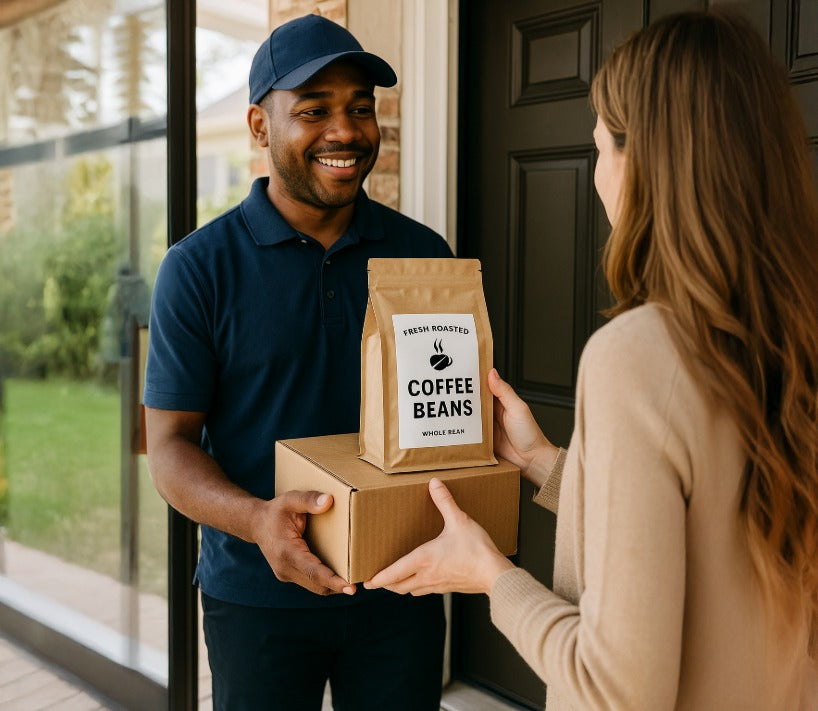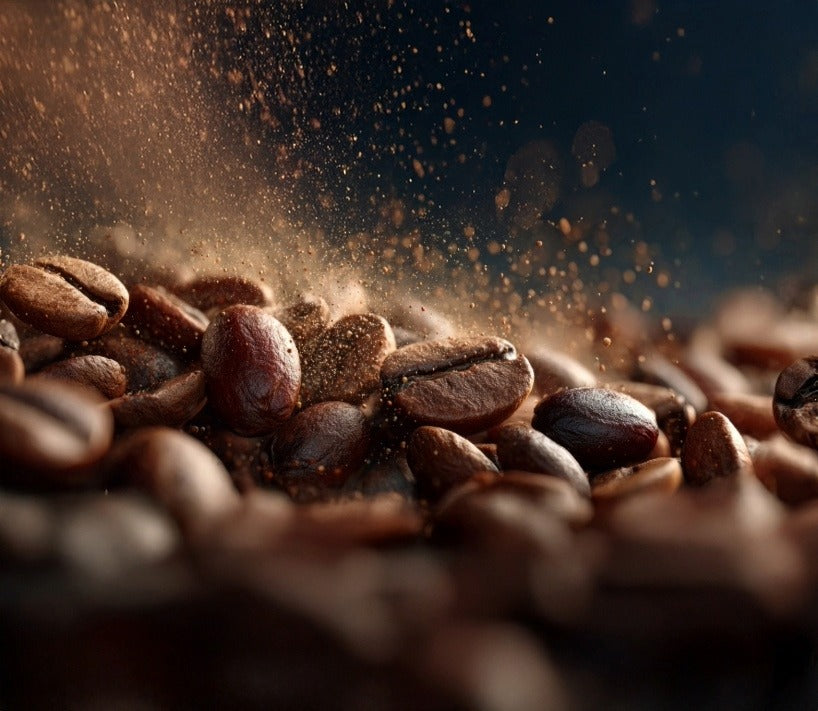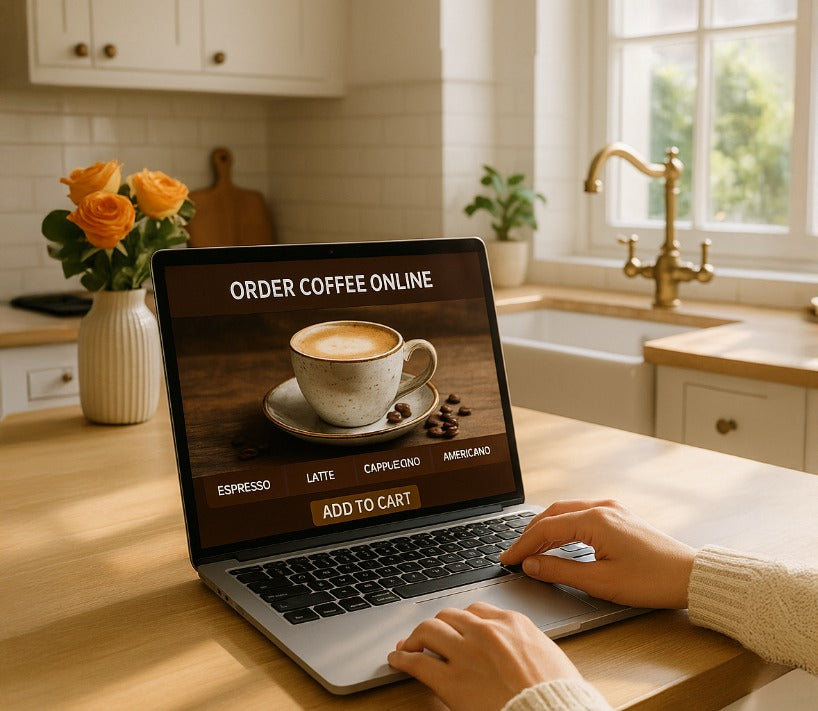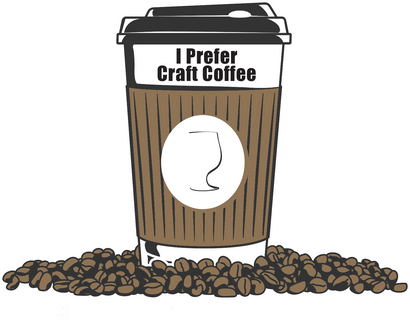Why Your Coffee Costs More Than Gasoline - Best Specialty Coffee Online
July 28, 2025 4 min read
Best Specialty Coffee Online: Why Your Coffee Costs More Than Gasoline (and Why That’s a Good Thing)
“Wait—how much for a 10-ounce bag?!”
If that was (or still is) your knee-jerk reaction, take a sip and hang tight. Today we’re diving—kayak-style—into the baffling world of coffee pricing and answering the real question:
Do the best things in life actually come with a bigger price tag—or have we all been hoodwinked by fancy burlap bags?
By the end of this read you’ll know exactly why a bag of best specialty coffee online costs more than the dusty tub of pre-ground stuff at the supermarket—and why, ounce-for-ounce (and laugh-for-laugh), it’s still the cheapest luxury you can treat yourself to every morning.
The Coffee Price Mystery, Unmasked
1. Grading 101: Why 60 ≠ 85
Coffee is scored on a 100-point scale by certified Q-graders. Anything below 80 is “commercial” or commodity coffee (aka the grocery-store norm). Specialty coffee starts at 80 and climbs to mythical triple-digit status (if you can find it).
| Feature | Commodity Coffee (Score ≤ 60) | Specialty Coffee (Score ≥ 85) |
|---|---|---|
| Quality Control | Bulk harvest, defects allowed | Hand-picked, defects rejected |
| Flavor | Bitter, one-dimensional | Sweet, complex, region-specific |
| Roast Method | Mass drum roast | Precise air roast on-demand |
| Price per 10 oz bag | $8–$12 | $25–$30 |
| Cost per Cup (20 cups) | $0.40–$0.60 | $1.25–$1.50 |
(Yes, you’re paying about a buck more per cup—but compare that to a $7 chain latte or the $18 you spent on “gourmet” avocado toast last weekend.)
2. Follow the Money (and the Farmers)
-
Sourcing: Smallholder farmers growing high-elevation micro-lot beans rarely crack Forbes. Paying them fair, living wages is baked into specialty pricing.
-
Processing: Honey-processed, anaerobic-fermented, shade-dried—these aren’t hipster buzzwords; they’re labor-intensive methods that produce next-level sweetness.
-
Air Roasting: Instead of spinning in a gas drum swallowing hydrocarbon fumes, beans levitate in 600 °F hot air for an even, clean roast—no burnt shells, no ashy aftertaste.
3. The Math Nobody Tells You
A 10-ounce bag of our top specialty coffee online brews roughly 20 8-ounce cups. At $27 delivered (yep—best coffee online free shipping for many folks), that’s $1.35 a cup.
Now do the Starbucks math: Grande black coffee—around $4.00 (plus the emotional toll of standing in line while someone debates Frappuccino toppings).
4. Freshness Is Priceless
The freshest craft coffee online is roasted to order. Commodity coffee? It was likely roasted months ago, warehouse-aged like a forgotten gym sock, and “refreshed” with CO₂ valves and marketing gloss. Flavor is a perishable asset—every day counts.
5. Taste Is a Luxury You Can Actually Afford
Let’s be real: You wouldn’t expect a 24-karat gold ring at 10-karat prices. Coffee’s no different. Want the best craft coffee at home every dawn? It’s going to cost more than freeze-dried crystals—and that’s okay. Your taste buds (and frankly, your dignity) deserve it.
How to Drink Like a Millionaire on a Freelancer Budget
-
Buy Less, More Often
Order coffee online once a month instead of stocking a Costco-sized brick. Fresh trumps hoarding. -
Grind Just Before Brewing
Whole beans lock in aromatic oils; pre-ground sacrifices them to the air. A $30 burr grinder is the quickest flavor ROI you’ll ever get. -
Use a Scale (Not Your Eyeballs)
Consistency equals savings. Over-dosing your pour-over by “feel” wastes cents every brew. -
Try a Coffee Bean Delivery Subscription
Predictable cadence = fewer forgotten “oh-no-I’m-out” emergency café runs. The best coffee bean delivery services include free shipping tiers, sample packs, or at least a friendly roaster who texts you back. -
Cup Your Coffee at Home
Channel your inner Q-grader: slurp, aerate, identify flavor notes, brag in group chats. Suddenly that $1.35 feels like a bargain.
Wait—What About My Wallet? (FAQ)
Q1: Is specialty coffee really healthier?
While we’re not giving medical advice, higher-grade beans are typically free from major defects, molds, and char. Cleaner roast = fewer unwanted compounds.
Q2: Can I stretch the bag further by brewing weaker?
Sure, but that’s like watering down wine. Aim for a 1:16 coffee-to-water ratio (e.g., 20 g coffee to 320 g water) for balance.
Q3: Does expensive coffee mean it’s always better?
Expensive ≠ excellent if you’re paying for branding instead of grading. Demand transparency: ask for the roast date, farm info, and Q-score.
Q4: How long does specialty coffee stay “fresh”?
Peak flavor is usually days 4–30 post-roast. After that it’s still drinkable, but nuanced notes fade faster than your New Year’s resolutions.
Q5: Is $27 the “right” price for high-scoring beans?
For an 85+ scored, air-roasted, small-batch coffee with free shipping, $25–$35 is normal in 2025. Anything lower is a red flag—or a clearance sale.
The Bottom Line
Best specialty coffee online may look pricey at checkout, but in the mug it’s a steal:
-
$1.35 a cup for flavor fireworks plus farmer fairness.
-
Zero gas-station bitterness.
-
Fresh enough to make your kitchen smell like a craft café.
So next time someone side-eyes your “fancy beans,” grin, sip, and remind them: you wouldn’t expect 24k gold for the price of 10k—and you certainly wouldn’t expect world-class coffee for spare change.
Happy brewing, budget-savvy bean-boss. Your taste buds (and that sarcastic wallet of yours) just scored the deal of the decade.
Also in Best Coffee To Buy Online Education

Best Fresh Roasted Coffee Delivery Online
November 28, 2025 4 min read
I roast the best tasting coffee at home for you! I use 100% electric equipment, so no hydrocarbons here. Best fresh roasted coffee delivery starts with high-scoring specialty coffee online.

Which Roaster Makes Better Coffee: Gas or Electric?
November 27, 2025 4 min read
Why electric drum roasters produce cleaner, sweeter, more consistent coffee—especially the kind you want when buying fresh roasted coffee beans online or trying to make the best tasting craft coffee at home.

Biggest Coffee Buying Mistake at Home
November 26, 2025 4 min read
Learn why the roast date matters and how to buy fresh, high-quality specialty coffee online. No guesswork when you order coffee online with me. I only stock, roast, and process the best tasting craft coffee at home. I am YOUR personal roaster.
